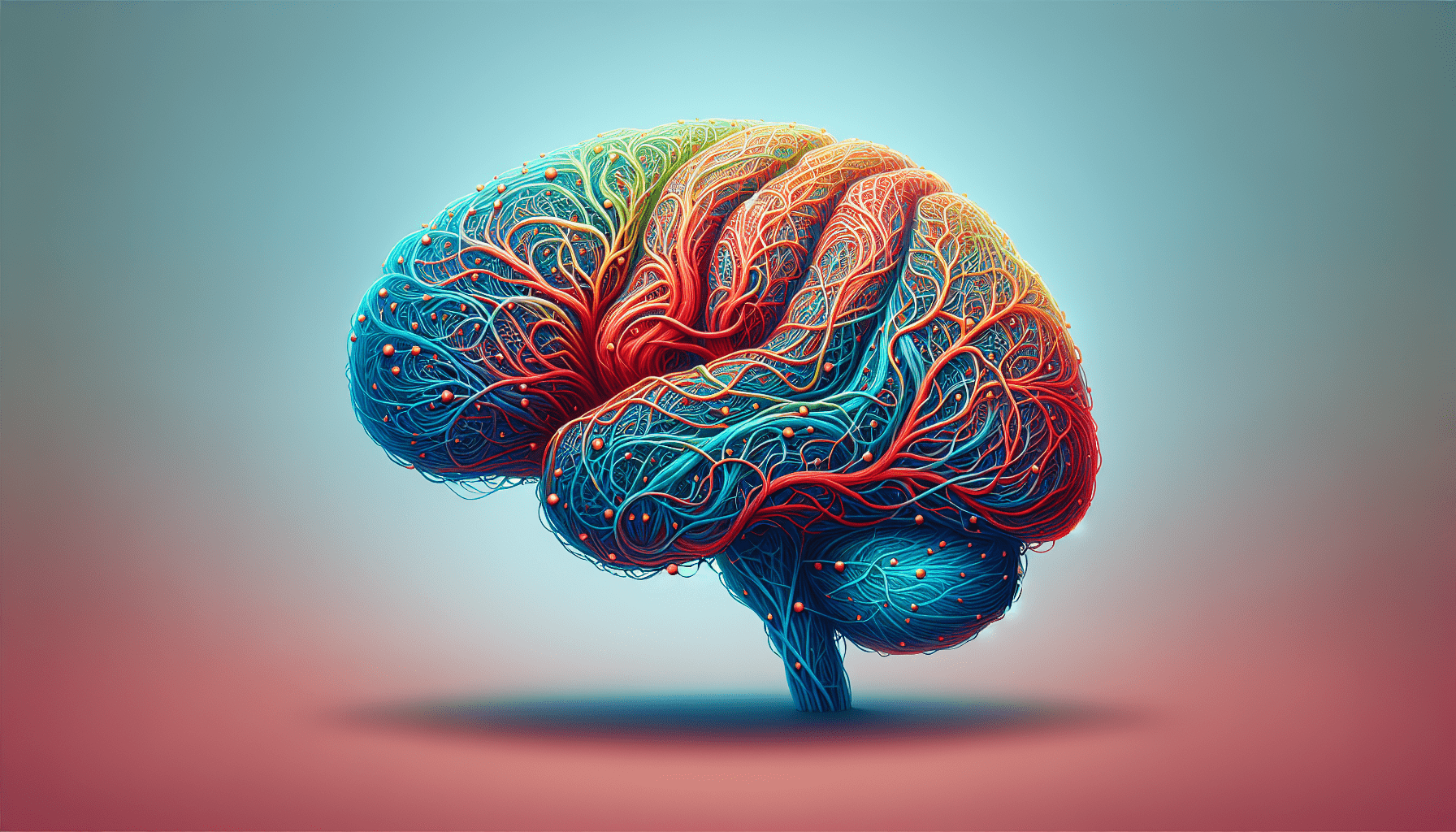In “The Impacts of Stress on Cognitive Function,” you'll discover the intricate ways stress affects your brain's ability to process and retain information. Stress hormones can play tricks on your memory, muddle your focus, and impair your judgment. You'll learn how chronic stress can shrink your hippocampus—the part of your brain responsible for memory and learning—while heightened levels of cortisol can interfere with your prefrontal cortex, making it tougher to make decisions and solve problems. Dive into this eye-opening article to understand the substantial effects stress can have on your cognitive abilities and find strategies to mitigate these impacts.
The Impacts of Stress on Cognitive Function
Have you ever found yourself unable to concentrate or think clearly during stressful situations? You're not alone. Stress is a common experience, and its impact on cognitive functions is profound and multifaceted. Let's delve into how stress affects cognitive function, unpacking the science behind it and exploring how you can mitigate its effects.
What is Cognitive Function?
Cognitive function refers to a range of mental processes that include thinking, knowing, memory, judgment, and problem-solving. Essentially, cognitive functions are the tools your brain uses to interact with the world. These functions can be broken down into several categories:
| Cognitive Function | Description |
|---|---|
| Attention | The ability to focus on specific stimuli or tasks. |
| Memory | The process of retaining and recalling past experiences. |
| Executive Functions | Skills that help manage and regulate behavior, such as planning and decision-making. |
| Processing Speed | The speed at which the brain processes information. |
| Language | The ability to understand and communicate through language. |
Understanding these functions is critical for grasping how stress impacts your mental capabilities.
What is Stress?
Stress is a natural response to challenges or perceived threats. It triggers a cascade of physiological responses designed to help you cope with difficult situations. This “fight-or-flight” response is engineered to maximize survival in immediate danger but can become detrimental when it becomes chronic.
Types of Stress
There are various kinds of stress, each affecting cognitive function differently:
| Type of Stress | Description |
|---|---|
| Acute Stress | Short-term stress that arises from immediate threats or pressures. |
| Chronic Stress | Ongoing stress resulting from long-term challenges or pressures. |
| Episodic Acute Stress | Frequent bouts of acute stress. |
| Traumatic Stress | Severe stress resulting from traumatic events like accidents or loss. |
Stress Hormones
When you're stressed, your body releases several hormones, including cortisol, adrenaline, and norepinephrine. These hormones prepare your body to either “fight” the threat or “flee” from it. While this is beneficial in short bursts, prolonged exposure to these hormones can have a deleterious effect on cognitive function.

How Stress Affects Cognitive Function
Attention and Focus
Stress has a significant impact on attention and focus. When you're stressed, your body prioritizes immediate survival over concentration on less urgent tasks. This can lead to:
- Reduced Attention Span: Under stress, it becomes harder to concentrate on a single task for an extended period.
- Increased Distractibility: Stress can make you more susceptible to distractions, as your mind constantly scans for new threats.
- Hyper-vigilance: While beneficial in a life-threatening situation, hyper-vigilance can be detrimental in everyday life, making it hard to focus on routine activities.
Memory
Memory is perhaps one of the most visibly affected cognitive functions under stress. Here's how stress can impact both short-term and long-term memory:
- Short-term Memory Impairment: Acute stress can temporarily block the retrieval of information, making it difficult to remember simple things like names or phone numbers.
- Long-term Memory Storage: Chronic stress impairs the brain's ability to form long-term memories, particularly in the hippocampus, a critical region for memory formation.
Executive Functions
Executive functions help you manage and regulate your behavior, making them essential for planning, decision-making, and problem-solving. Stress impacts these functions in several ways:
- Impaired Decision-Making: Stress can cloud your judgment, leading to poor decision-making as it disrupts the prefrontal cortex, the brain region responsible for executive functions.
- Reduced Self-Control: Under stress, you're more likely to act on impulse, as the brain's reward system becomes more dominant.
- Difficulty with Planning: Chronic stress impacts your ability to plan effectively, as it reduces the brain's capacity for organizing and prioritizing tasks.
Processing Speed
Stress slows down your cognitive processing speed. This means that tasks which require quick thinking and rapid decision-making become more challenging:
- Slower Reaction Times: Acute stress can lead to delayed reaction times, making it harder to respond quickly to stimuli.
- Mental Fatigue: Chronic stress contributes to mental fatigue, slowing down your overall cognitive processing speed.
Language Skills
Stress also impacts your language skills, making it difficult to articulate thoughts clearly and coherently. When stressed:
- Speech Disfluency: You may find yourself pausing more frequently or struggling to find the right words.
- Comprehension Difficulties: Processing and understanding complex information becomes more challenging under stress.
The Science Behind Stress and Cognitive Dysfunction
Hormonal Impact
Cortisol, often dubbed the “stress hormone,” plays a significant role in cognitive function. Elevated levels of cortisol can lead to:
- Hippocampal Damage: High cortisol levels can damage the hippocampus, impairing memory formation and recall.
- Prefrontal Cortex Disruption: The prefrontal cortex, responsible for executive functions, is particularly sensitive to cortisol. Elevated cortisol levels can impair its functioning, leading to poor decision-making and planning.
Neural Impact
Stress also affects neural connectivity and plasticity:
- Synaptic Pruning: Chronic stress accelerates synaptic pruning in the brain. While this process is vital for brain development, excessive pruning can reduce cognitive functionality.
- Neurogenesis Inhibition: Stress inhibits the birth of new neurons, particularly in the hippocampus. This can lead to long-term cognitive decline.
Inflammatory Response
Stress triggers an inflammatory response, releasing cytokines that can affect brain function. Chronic inflammation is linked to cognitive disorders such as depression and Alzheimer's disease.

Real-life Examples and Case Studies
Workplace Stress
Consider the case of Sarah, a high-performing executive constantly under pressure. Over time, Sarah noticed she was becoming increasingly forgetful and struggling with simple tasks. Her ability to make quick decisions also suffered. When Sarah took a medical leave and managed her stress through mindfulness and exercise, she noticed a marked improvement in her cognitive abilities.
Academic Stress
John, a university student, experienced chronic stress during exam periods. His attention span dwindled, and he found it challenging to retain information. Upon integrating stress management techniques such as deep breathing exercises and adequate sleep, John noticed a significant improvement in his academic performance.
Mitigating the Impact of Stress on Cognitive Function
Lifestyle Changes
Regular Exercise
Engaging in regular physical activity can help reduce cortisol levels and improve cognitive function. Activities like walking, swimming, and yoga are particularly beneficial.
Healthy Diet
A balanced diet rich in antioxidants, omega-3 fatty acids, and vitamins can support brain health and reduce the impact of stress.
| Nutrient | Source |
|---|---|
| Antioxidants | Berries, nuts, dark chocolate |
| Omega-3 Fatty Acids | Fish, flaxseeds, walnuts |
| B Vitamins | Whole grains, leafy greens, legumes |
Mindfulness Techniques
Meditation
Meditation can help in regulating stress hormones, improving your focus, and enhancing overall cognitive function. Even a few minutes of meditation daily can make a significant difference.
Deep Breathing Exercises
Simple deep-breathing exercises can help in reducing immediate stress and improving attention and focus.
Cognitive Behavioral Therapy (CBT)
CBT is an effective treatment for managing stress and its cognitive effects. It involves identifying and challenging negative thought patterns and developing healthier coping mechanisms.
Adequate Sleep
Sleep is crucial for brain function, and chronic stress often interferes with sleep quality. Ensuring you get at least 7-8 hours of sleep each night can significantly improve cognitive function.
Social Support
Maintaining strong social connections can act as a buffer against stress, improving your resilience and cognitive health.

Future Research Directions
The impact of stress on cognitive function is a growing area of research. Future studies are likely to explore:
- Genetic Predispositions: Understanding how genetic factors influence the relationship between stress and cognitive function.
- Technological Interventions: Using technology such as neurofeedback and biofeedback to manage stress.
- Pharmacological Solutions: Developing medications that can mitigate the adverse effects of stress hormones on the brain.
Conclusion
Stress has a profound impact on cognitive function, affecting everything from your attention and memory to decision-making and language skills. Understanding the specific ways in which stress impacts your brain can empower you to take proactive steps in mitigating its effects. By adopting lifestyle changes, engaging in mindfulness techniques, and seeking professional help when necessary, you can protect your cognitive function and enhance your overall well-being.
So, the next time you find yourself overwhelmed by stress, remember that there are effective strategies you can employ to reclaim your cognitive capabilities. Taking these steps will not only improve your mental clarity but also enhance your quality of life.

